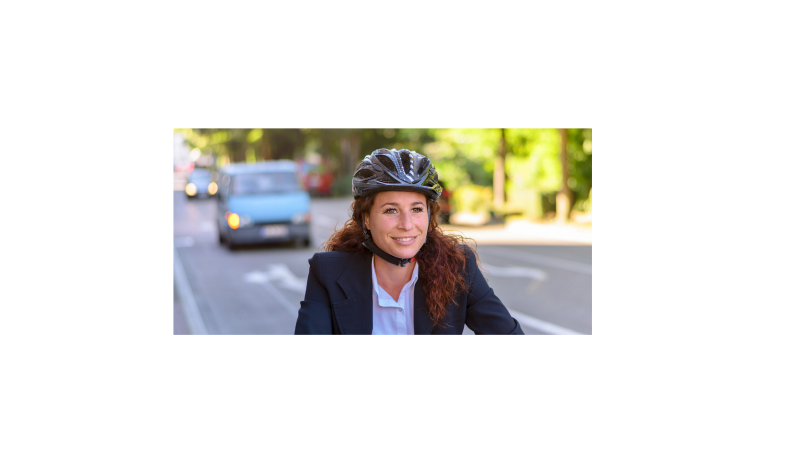
Blog: One million weekly journeys are a wake-up call
The recently announced traffic survey from the States of Guernsey that captured nearly one million vehicle movements each week to and from St Peter Port demonstrated that Guernsey’s dependence on motorised transport is high. More importantly, the key message that the active travel team at the Health Improvement Commission takes away from this survey is that this level of traffic is not sustainable for 21st century Guernsey.
Nearly 11,000 vehicles an hour travelling along the Glategny Esplanade is a shocking statistic, but this congestion is probably no surprise to those who travel by car along the front or via the next busiest road, St Julians Avenue.
The survey is welcomed as it provides a benchmark of the levels of vehicular activity across town. Insight from surveys such as this provides an important basis for evidence-based decision making and the Health Improvement Commission welcomes future surveys and the development of trend data over time. In future survey’s we’d like to see the use of other modes of transport measured too, such as cycling and walking.
Anecdotally, we hear that more commuters are walking or cycling more often, and this is backed up by local evidence from fitness apps such as Strava. Our recent bike repair clinics in town and at the hospital were popular, showing that people are viewing cycling to work as a viable and valuable option.
Similarly, the long-term trend in an increase in bus usage is very positive – as public transport is linked with greater physical activity - mainly through the short walks to and from the bus.
It’s easy to see that one million weekly journeys are not sustainable long-term and this needs to be addressed. The Health Improvement Commission will continue its work to support and encourage islanders to consider ways to reduce this number.
Active travel is a great way to reduce congestion as well as improve health in our island community. Switching short journeys from car to walking or cycling, swapping a few daily commutes each week for more active options, or using park and stride (driving or bussing part of the journey before walking the rest) are just some ways that we can increase our active travel. Some of the benefits are:
- Very little to no environmental damage caused by walking or cycling
- Physical activity improves mental and physical health
- Walking and cycling are considerably cheaper
- Walking and cycling are fun and sociable
As the States of Guernsey, employers, schools, and the wider community plan for the future, we look forward to seeing the prioritisation of active travel. Cities such as London, Paris and Milan have transformed their environments so that active travel is the easier, preferential option; Guernsey can follow some of these changes.
Recently, the Health Improvement Commission produced a document in response to the Draft Town Regeneration Framework, showcasing our ideas to make St. Peter Port a healthier, more vibrant and fun place to live, work and visit, with many suggestions around active travel.
In the UK, the government’s climate change advisors recommend a reduction of car miles of at least 9% by 2035 and 17% by 2035. Locally, a similar discussion would be beneficial given the size of the Bailiwick and our autonomy.
Guernsey could also set targets for active travel. In Britain, 2% of journeys are made by bike. That compares to 12% in Germany, 16% in Denmark and 27% in the Netherlands. What are the levels in Guernsey and what do we want them to be in the future? We’ve recently donated our 70th balance bike to early years settings to enable children to develop cycling confidence from an early age. We wonder whether by the time these 4-5 year olds are ready to take to the roads as our future workforce they will feel empowered by a safer and less congested environment.
Guernsey and the world’s recent lockdown experiences gave us a taster of what life might be like if we rethink our relationship with car journeys. Statistics from the UK showed that road traffic fell by nearly three quarters to its lowest level since the 1950’s in March and April 2020. The global response, from Manchester to Mexico City, from Bogota to Budapest was to announce a range of exciting initiatives to create pedestrianised zones, to make cycling and walking easier, safer and more normal and these are now becoming permanent arrangements.
The Health Improvement Commission’s active travel initiatives will continue to remind Guernsey how active travel is a force for good on the island and can contribute to a healthier, more environmentally sustainable community into the future.
For more information on the Be Active work from the Health Improvement Commission, please click here.